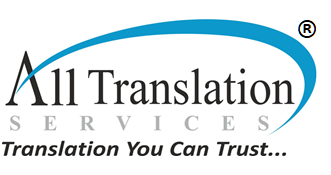Clinical Research Translation in Advancing Global Healthcare
Certified clinical research translation service provider in India
Clinical research plays a critical role in advancing medical science, driving innovation, and improving patient outcomes. As this research often involves international collaboration, the accurate translation of clinical research documents becomes an essential component of the process. From clinical trial protocols to patient information leaflets, ensuring precise and culturally appropriate translations is crucial for compliance, ethical considerations, and effective communication.
Why Clinical Research Translation Matters
Clinical research translation bridges the gap between diverse linguistic and cultural backgrounds. It enables pharmaceutical companies, research organizations, and healthcare providers to:
- Comply with Regulatory Requirements: Each country has its own regulatory framework for clinical trials and research. Translating documents accurately ensures adherence to local regulations and guidelines, minimizing the risk of legal and ethical violations.
- Facilitate Global Collaboration: Research often involves multiple stakeholders, including scientists, healthcare professionals, and participants from various countries. Translation fosters seamless collaboration and understanding among all parties.
- Enhance Participant Understanding: Accurate translation of informed consent forms, patient information sheets, and other documents ensures that participants understand their roles, rights, and the potential risks and benefits of the research.
- Maintain Data Integrity: Misinterpretations or inaccuracies in translations can compromise the reliability of data. High-quality translation ensures that the integrity of research findings is upheld across languages.
Key Challenges in Clinical Research Translation
Despite its importance, clinical research translation presents several challenges, including:
- Technical Terminology: Clinical research involves complex medical and scientific terms that require precise translation by subject matter experts.
- Cultural Sensitivity: Translators must consider cultural nuances and adapt content to ensure clarity and acceptance in the target audience.
- Legal and Ethical Standards: Translating documents like informed consent forms requires a thorough understanding of legal and ethical standards in the target country.
- Rapidly Evolving Field: Clinical research is a dynamic field, necessitating up-to-date knowledge of advancements and terminology.
Best Practices for Clinical Research Translation
To overcome these challenges and ensure high-quality translations, organizations should:
- Engage Specialized Translators: Work with professional translators who have expertise in clinical research, medicine, and the target language.
- Implement a Robust Review Process: Incorporate multiple layers of review, including proofreading, editing, and validation by subject matter experts.
- Use Translation Memory Tools: Leverage technology to ensure consistency across documents, especially for recurring terminology and phrases.
- Adhere to International Standards: Follow guidelines set by organizations like the International Conference on Harmonisation (ICH) to ensure globally acceptable translations.
- Focus on Localization: Tailor translations to align with the cultural and linguistic context of the target region, ensuring effective communication and participant engagement.
Documents That Require Clinical Research Translation
Clinical research translation covers a wide range of documents, including:
- Protocols and study designs
- Investigator brochures
- Informed consent forms
- Patient-reported outcomes (PROs)
- Case report forms (CRFs)
- Regulatory submission documents
- Clinical trial agreements
- Adverse event reports
The Role of Technology in Clinical Research Translation
Modern technology has revolutionized clinical research translation by:
- Improving Accuracy: AI-powered tools and translation memory software enhance consistency and reduce errors.
- Speeding Up Processes: Automated workflows streamline the translation process, ensuring faster turnaround times.
- Ensuring Compliance: Technology helps maintain compliance with local and international standards by offering built-in checks and validation features.
Partner with Experts for Clinical Research Translation
Given the complexity and importance of clinical research translation, partnering with a professional translation company is essential. A reliable partner brings:
- Expertise in Medical and Scientific Fields: Ensuring accurate and precise translations.
- Regulatory Knowledge: Assisting in compliance with global and local requirements.
- Quality Assurance Processes: Delivering error-free and culturally adapted translations.
Conclusion
Clinical research translation is not just about converting words from one language to another; it is about ensuring accuracy, cultural appropriateness, and compliance in a field that directly impacts human lives. As the world becomes increasingly interconnected, the demand for professional translation services in clinical research continues to grow.
Our certified clinical research translation company is specialize in high-quality clinical research translation services tailored to meet the unique needs of our clients. Our team of experienced linguists and subject matter experts ensures that your research is communicated accurately and effectively across languages. Contact us today to learn how we can assist you in advancing global healthcare through precise and reliable translation solutions.
